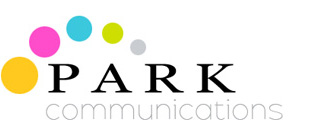What the election tells us about communication
 Now that the dust has settled on the 2015 election, here are a few points about communication that struck me over the course of the campaigns.
Now that the dust has settled on the 2015 election, here are a few points about communication that struck me over the course of the campaigns.
- If you come across as authentic, your audience will be more enthusiastic and, if necessary, forgiving. Authenticity is hard to convey in a few words, but if you’re a politician and sound like you’ve been to a finishing school for MPs, you probably haven’t got it. People want to feel they are seeing the real you.
- A significant focus on criticising others is a dangerous strategy in the popularity stakes.
- You fail to address the needs and concerns of all your audiences at your peril.
- People are interested in the practical and the now and ‘what’s in it for me?’ They are pragmatic about what they see in the world around them, and will approach decision-making tactically if necessary. So focusing on ideology alone is not going to cut it.
- Don’t act sure about something that you can’t possibly be certain of (e.g. the ‘I’ll eat my hat incident’). It can only backfire.
- It's a fine line between a creative idea and something that feels a bit gimmicky and inauthentic (the stone), even with the best of intentions. Test ideas carefully before using. Also a lack of buy-in can lead to lukewarm presentation of the concept from those who are supposed to be in your camp.
- Having seven people spouting at you in sound bites (the election debates) is interesting in terms of the occasion, but you don’t tend to take away much that is new or useful.
- People will avoid reading long text, even if it’s important (manifestos). So achieving the right mix of simplicity + substance + method of presentation is very important.
- Context is everything – registering someone’s name is great but using it once, or repeatedly, may not feel natural. Avoid applying a ‘rule’ to everything.
- Haranguing someone with the same question over and over again does not lead to a discussion that is useful to anyone (election media interviews). It may genuinely not be practical or sensible to answer, and not for sinister reasons. Identifying a particular angle as ‘newsworthy’ doesn’t necessarily coincide with what others want or need to know or provide a well-rounded story. Building a proper rapport in discussion will achieve better results of greater substance.
Has anything struck you about communication over the election period?


2 Responses